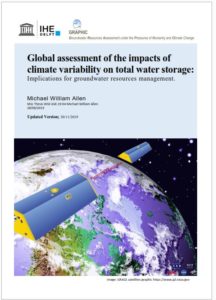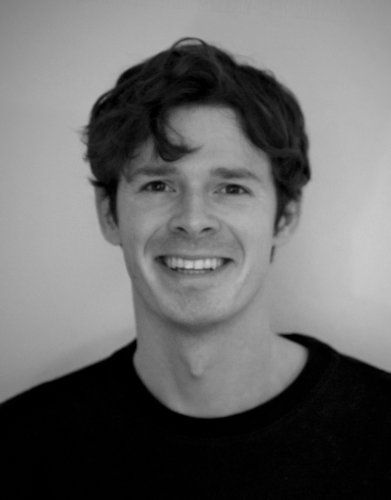The impacts of climate variability on the world’s global aquifers
 Due to global trends in climate and human activity, groundwater is becoming increasingly more important as a water source. Alongside the effects of climate change and anthropogenic factors, natural climate cycles, like El Niño–Southern Oscillation (ENSO), the Pacific Decadal Oscillation (PDO) and the Atlantic Multi-decadal Oscillation (AMO), have considerable impacts on the groundwater recharge. However, to date, only a small number of studies have sought to gauge these impacts on a global scale and to consider their implications in terms of management and policy decisions. This page links to a research study (Michael Allen 2019) which looks at one methodological approach to assess the effect of global climatic oscillations on total water storage and groundwater storage in large aquifers (area over 100 000 km²).
Due to global trends in climate and human activity, groundwater is becoming increasingly more important as a water source. Alongside the effects of climate change and anthropogenic factors, natural climate cycles, like El Niño–Southern Oscillation (ENSO), the Pacific Decadal Oscillation (PDO) and the Atlantic Multi-decadal Oscillation (AMO), have considerable impacts on the groundwater recharge. However, to date, only a small number of studies have sought to gauge these impacts on a global scale and to consider their implications in terms of management and policy decisions. This page links to a research study (Michael Allen 2019) which looks at one methodological approach to assess the effect of global climatic oscillations on total water storage and groundwater storage in large aquifers (area over 100 000 km²).
Monitoring total water storage change and its implications for groundwater resources management
The study is documented in a Masters Thesis1 – Global assessment of the impacts of climate variability on total water storage: implications for groundwater resources management – which looks to evaluate this methodology via a study on 26 large aquifers located in varying climatic regions of the world. The impact of interannual and multidecadal climate variability on groundwater resources were assessed by running wavelet analyses on the monthly time series of several oceanic indices and modelled Total Water Storage (TWS). Two approaches were taken in calculating TWS. The first one is made through the analysis of data from the Gravity Recovery and Climate Experiment (GRACE), which provides information from 2002 to 2016. This short time frame meant it is unable yet to capture the multidecadal climate oscillations, so a second approach was employed. The second approach uses a Simple Water Balance (SWB) Model which comprises of two-variables, precipitation, and evapotranspiration. This model was used to reconstruct past water storage changes from 1980 to 2017. it is important to note that the SWB Model results only look at groundwater storage flux.
The results showed the SWB-Model approach is a good multi-regional tool for the examination of the effects of climate variations on (GWS) groundwater storage change around the world. In the majority of the studied aquifer systems, the SWB-Model showed to be a powerful tool in the extension of GRACE TWS change data. There are several strong indicators of where the Model results best represent the groundwater storage change. These include aquifer size and how well the area boundary match. The study also highlighted the strong multi-decadal links between AMO and GWS change that occurs in many global aquifer systems. Its positive phases see increases in storage in Australia, India, Southern Africa, and parts of central Asia and decrease in south East Asia the amazon and the Sahel Zone. PDO was seen to have its biggest impacts when its positive or negative phases matched that of ENSO. When the positive phases were aligned, aquifer systems in India, Syr-Daray, and Australia saw decreases in storage and increases in America.
These results can be used to address the threat of water scarcity and manage groundwater to mitigate the threats of climate variability and change. They indicate where more detailed local studies are necessary to collect data to further support the development of long-term groundwater management strategies of large (in some cases transboundary) aquifers.
1 Michael Allen (2019) Global assessment of the impacts of climate variability on total water storage: implications for groundwater resources management. [Master’s thesis]. IHE Delft Institute for Water Education, Delft, the Netherlands.
 | Michael Allen [Email: [email protected] - LinkedIn: Michael Allen] I am a hydrogeologist and environmental scientist, with a focus on data science and environmental assessments. I have developed strong research, analytical and technical skills through multiple projects and my recent Masters in Groundwater and Global Change from IHE Delft. I have a particular interest in environmental protection and remote sensing. |